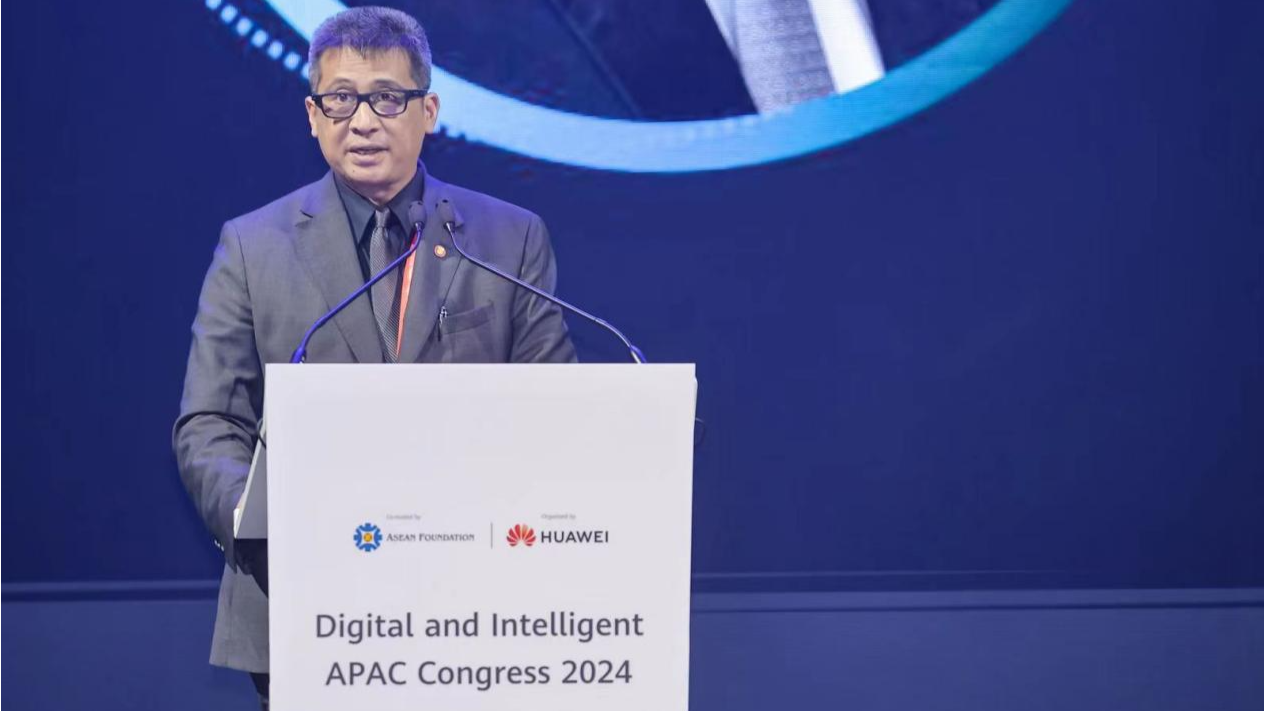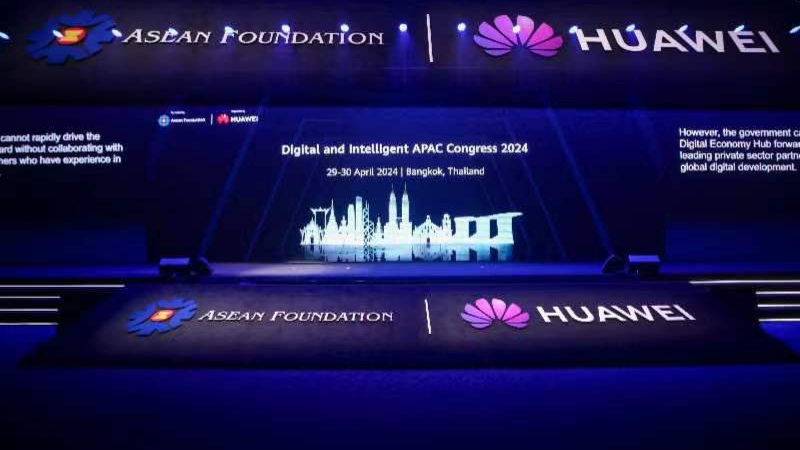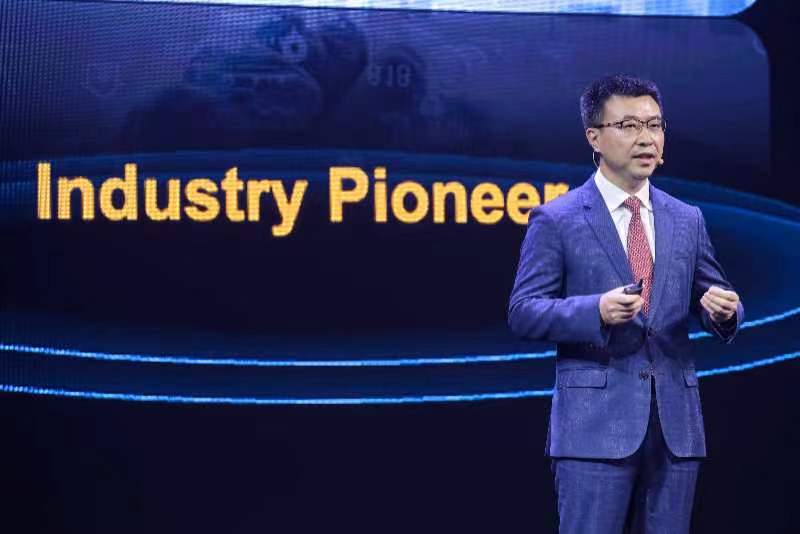
Chinese tech giant Huawei will use its technology to help to build the Asia-Pacific region into a digital intelligence highland and a leading force in the global transformation to the digital and smart economy.
At the Digital and Intelligent Asia-Pacific Congress, which kicked off in Bangkok on April 29, Huawei announced several of its new services and products.
These included artificial intelligence (AI) security solutions, safe data storage, AI training systems, and all-optical networks covering nine major industries for several application scenarios, such as government and schools.
READ MORE: Huawei's new smartphone series seen as key to revival
By the end of this year, the company will provide a total of 74 smart solutions and services overseas, aiming to boost sectors in need of smart control and management, according to Lin Baifeng, President of Huawei Asia-Pacific Region.
As the world’s third-largest internet-based economy, the Association of Southeast Asian Nations (ASEAN) is home to more than 480 million active internet users, of whom 80 percent are digital consumers, according to the ASEAN Statistics Division.
In 2022, the value of the ASEAN digital economy reached $300 billion and the value is estimated to achieve $1 trillion by 2030.

“Despite advancements, the digital divide remains a major obstacle that stands in the way of a thriving digital future across the region,” said Nararya S. Soeprapto, Deputy Secretary-General of ASEAN for Community and Corporate Affairs.
“To address this critical challenge, we need to join hands for a coherent approach, bolstering digital connectivity and bridging the developmental disparities,” he added.
At the end of last year, Huawei also signed a memorandum of understanding with Thailand’s Ministry of Digital Economy and Society to provide support towards AI development and talent cultivation, helping the country establish itself as a regional AI and digital economy hub
In his opening remarks at the congress, Soeprapto noted the importance of addressing the affordability and accessibility of digital infrastructure and services to ensure digital inclusion for all, as more than a quarter of people in Southeast Asia still lack internet access.
“Forming stronger partnerships to enhance the region’s human resources through digital re-skilling and upskilling initiatives is essential to addressing the major challenges in the digital divide,” Soeprapto said.
He added that technologies such as AI will not just eliminate or create jobs but will change the way of work across society.
Soeprapto said he highly appreciated Huawei’s contribution to the digital transition in the ASEAN region and highlighted several programs. These included Seeds for the Future, which equipped the youth with information and communications technology skills, and Huawei’s collaboration with the Malaysian Communication and Multimedia Commission on talent development initiatives for the communications and multimedia industry.
At the end of last year, Huawei also signed a memorandum of understanding with Thailand’s Ministry of Digital Economy and Society to provide support towards AI development and talent cultivation, helping the country establish itself as a regional AI and digital economy hub.
At the opening ceremony of the congress, the Thai Digital Economy and Society Minister Prasert Jantararuangtong said the partnership with Huawei is important to the kingdom’s development goal.
“Thailand should enhance competitiveness and create a secure and confident environment for electronic transactions across all sectors,” said Prasert.
However, the government cannot rapidly drive the aim without collaborating with leading private sector partners who have experience in global digital development,” he added.
Prasert listed several programs under the partnership, including the development of digital technologies, particularly in Al research and innovation, human resource development, and startup support, as well as assisting the government’s Go Cloud First policy.

“I believe that the congress will be a platform to ignite collaboration and ideas towards accelerating both development and transformation in the economy and society of the Asia-Pacific region,” he added.
READ MORE: Huawei Technologies launches new HarmonyOS version
Huawei’s Deputy Chairwoman and Chief Financial Officer Meng Wanzhou also sent a video greeting to the event. She noted that the Asia-Pacific is one of the most dynamic and promising regions in the world and also a pilot region for developing the digital and smart economy.
“Huawei will continue to contribute our efforts and make more value for the region and we look forward to cooperating with more partners,” Meng said.
“In the future, Huawei will keep boosting the digital transition in the Asia-Pacific region, benefiting its people via our technologies,” she added.
Contact the writer at yangwanli@chinadaily.com.cn


